A relaxing evening around Pong Dam Wetlands with some birds, colourful sunset & snow covered Dhauladhar mountains around us
Ever since I saw the photographs that VJ clicked on his first visit to Pong Dam water reservoir for bird counting, I was very curious about the area. Every year, lakhs of beautiful migratory birds fly across the continents, and choose to land around these wetlands, making them their home for the next few months. Such a place has to be special.
And then we finally got the opportunity to visit Kangra area of Himachal Pradesh this year and I was beyond myself with excitement. Stars aligned such that we not only got a chance to visit the wetlands but also spend a night at the Forest Guesthouse near the area. So we were able to visit the wetlands in the evening as well as early in the morning.
We drove there in November on our MG Hector and our first glimpse of the water-reservoir was when we were driving toward the Nandpur Fort. Even then we could spot a few birds flying in the distance. So the anticipation was building up.
We reached the Nagrota Surian forest guest house at around 3PM. The forest personnel we had spoken to had advised us to stay in this town and visit the wetlands close to this area as this was the place where we were likely to see the maximum number of birds.
We had also made contact with Mr Ankush Dhiman, who is a forest guard at Nagrota Surian. We were constantly in touch with him throughout our stay at Nagrota Surian. In fact when our car got stuck in mud, he was the one who helped us out. The evening when we reached Nagrota Surian, Ankush offered to accompany us during our exploration.
The approach towards the wetlands are gated and your need to purchase a ticket (10 Rs per person and 100 Rs for car) to go beyond these gates. The tickets are very cheap, so really aren't a factor. But the fact that the wetlands are gated and ticketed does give a sense of security. However, it is still advisable to move away from the wetland when it gets dark.
There are several reasons to this -
1) As you get closer to water, the mud gets more and more slippery and there are sharp rocks jutting out. If one was to slip or trip and fall, there are chances of getting seriously hurt. I have also heard of incidents related to quicksand
2) Even though the wetlands are gated, the topography is such that no one can ensure that the area is completely sealed against anti-social elements.
3) There can be wild animals such as snakes, jackals, wild boars, and even leopards in the area.
Related Blogpost - World's Highest Altitude Cricket Stadium in Dharmshala - Unimaginable location surrounded by snow covered Himalayan peaks & stunning tea-estates of Himachal Pradesh
The water reservoir and the wetlands are formed as a result of the construction of the reservoir known as the Maharana Pratap Sagar. This was created with the construction of a dam known as Pong Dam on the River Beas in the year 1975.
Related Blogpost - Beautiful Church in Mcleodganj, Himachal Pradesh || St. John Church near Dharmshala Town
After the construction of the Dam, several villages and historical sites got submerged in the water, as it happens in many areas where dams are built. During summer, when the water recedes, several of these sites re-emerge, most famous among which is Bathu ki ladi.
These beautiful temples emerge from the reservoir every summer and even in late November, when we got there, tips of these temples were visible in the distance. We could only imagine how beautiful these temples would look when they would rise out of water. However, you can either see the temples, or you can see the birds.
Related Blogpost - Ellora of Himachal Pradesh maintained by Archaeological Survey of India - Masroor Rockcut Temple || A Monolithic Temple in Kangra Region of Himalayan State, India
When we got here, sun was still high so we had time to roam around a bit before settling down to watch the sunset. We spotted a gaggle of bar-headed geese roaming around the wetlands and they became increasingly noisier as we moved closer to them. They were clearly not comfortable with us around. We were trying to maintain a respectable distance, but the definition of "respectable distance" was apparently different for the geese and us. So we let them be and clicked them from a distance.
Related Blogpost - Tea Estates around Dharmshala town of Himachal Pradesh - Lush green landscapes surrounded by snow covered Dhauladhar Mountain Ranges in Himalayan State of India
We also spotted several ducks, lapwings, herons, larks, and birds of prey before we started moving towards the West banks where we wanted to settle down to enjoy the sunset. And with clouds on the horizon, it was promising to be a brilliant sunset.
Related Blogpost - Indrunag Temple in Dharmshala, Himachal Pradesh - A mountain peak with spectacular views of Mcleodganj, Dharmpur and snow covered Dhauladhar Himalayan Ranges
We took out our Camping Chairs and placed them at a plain, dry location and settled in with the dog who had befriended us curled beside us. We had carried some home-made snacks and some soft drinks with us to keep us nourished. All that felt like a feast after 2 hours of continuous walking around. We also fed our canine friend some biscuits. It was an amazing culmination to the exciting day.
Related Blogpost - Our learnings about rescuing a car stuck in marshy land - A story about how our car got stuck in slippery muddy (clay) wetlands of Pong Dam in Himachal Pradesh
Once the sun had gone down and it had started getting dark, we wrapped up and started driving back. Our dog followed us till the gate, which was a good 2 kilometer from the place where we had parked. It broke our hearts a little, but we knew we will meet him again next morning. And sure enough, our dog met us at the entry gate the next day as well. And chose to stay with us throughout the day. So the experience of Pong was made special, not only by the birds (for whom there will be another dedicated post) but also by this dog.
If you liked this post and found it helpful, I would request you to follow these things when traveling -
1. Manage your waste well and don’t litter Use dustbins.
2. Tell us if you went to a place and found it hard to locate a dustbin.
3. Avoid bottle waters in hills. Usually you get clean water in hills and water bottles create lot of mess in our ecosystem.
4. Say big no to plastic and avoid those unhealthy snacks packed in plastic bags. Rather buy fruits.
5. Don't play loud blaring music in forests of jungle camps. You are a guest in that ecosystem and disturbing the locals (humans and animals) is not polite.



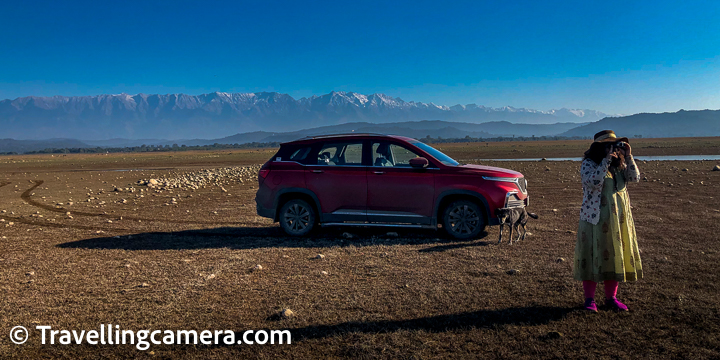

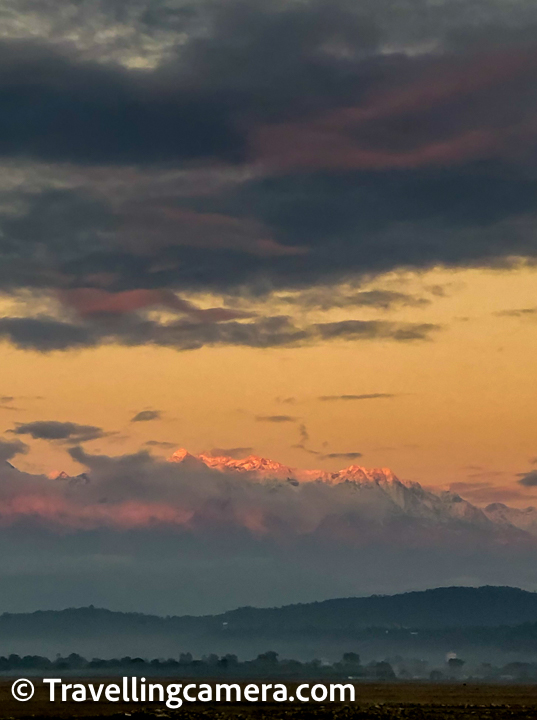
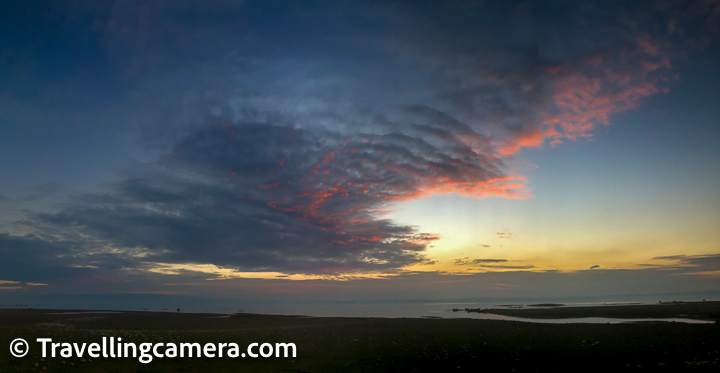
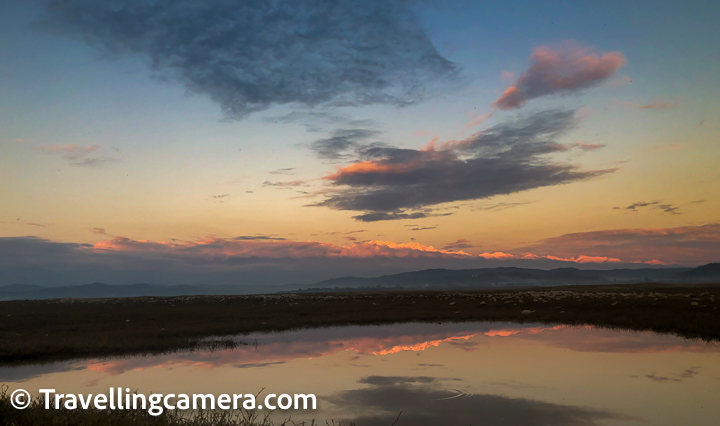


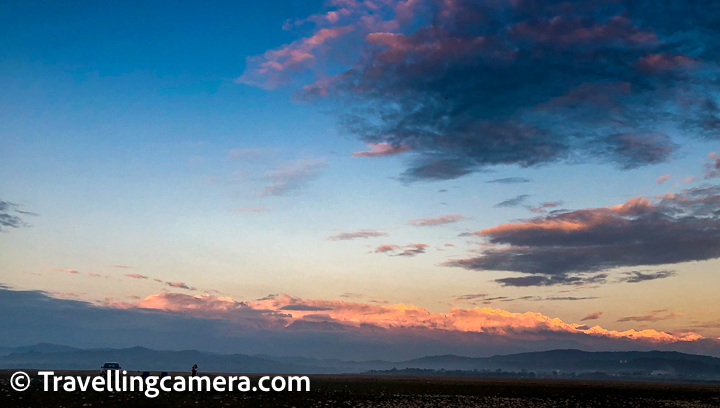
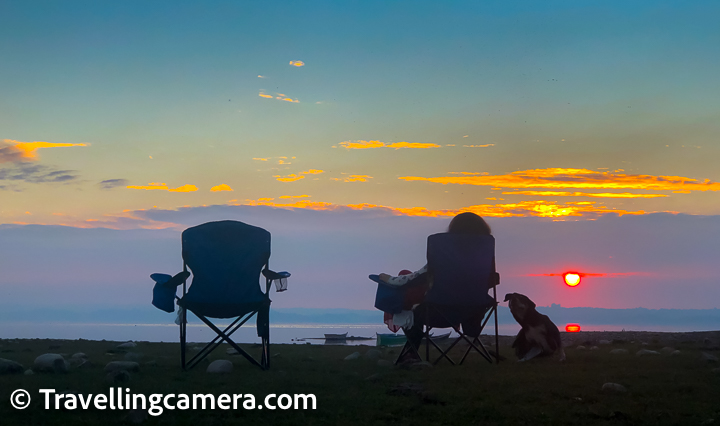




.jpg)
Comments